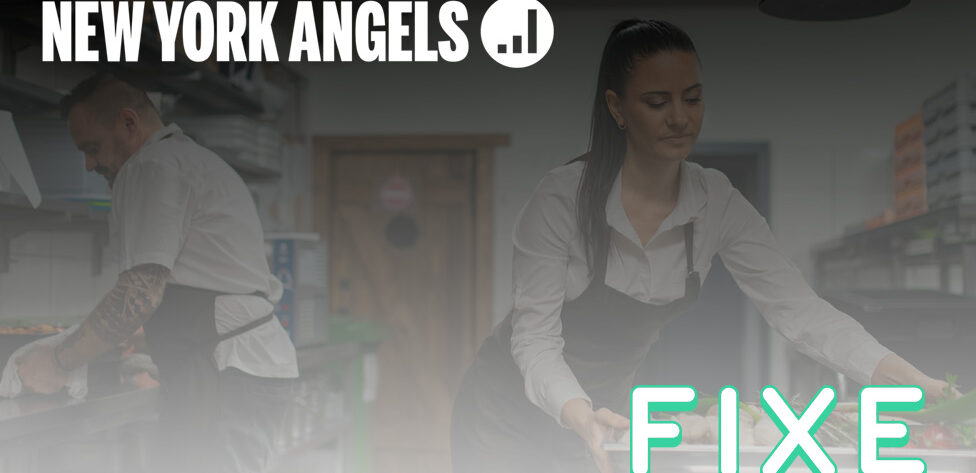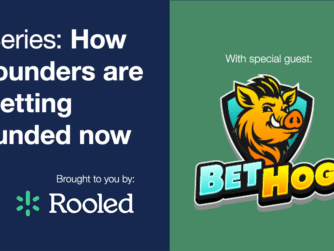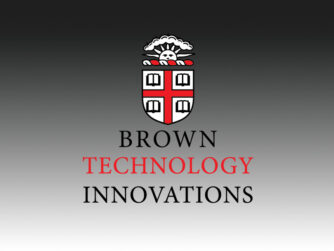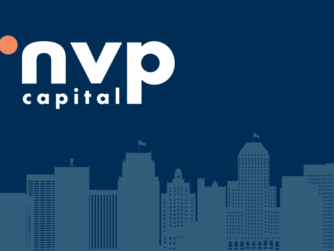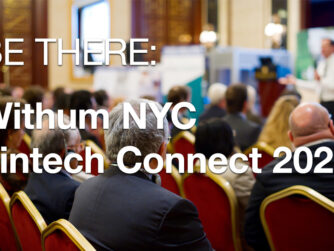Industry: Angel Investing; Accounting Software for Restaurants
Location: New York, NY and Los Angeles, CA
Read the Transcript
Host: Welcome to the New York Angels edition of the Angel Nest Podcast, where real angel investors and entrepreneurs partner to build great companies. I’m David Hemenway. I am a five time founder and a member of the New York Angels, where we fund and mentor great young companies. Today we talk to the co-founder of Fixe an automated streamlined bookkeeping service for the restaurant industry, and we’ll hear how his chance meeting led to The New York Angels leading his seed investment round. We’re happy to be joined today by Ryan Handel, the CEO of Fixe, and Simon Hopkins, my fellow New York Angel, who co-led the investment in Fixe and has served on the board ever since. A little later we’ll hear from Cindy Cook, our Board Chair. She’ll tell us about the current state of startup investing in New York and around the country, and how she went from corporate marketing to angel investing.
We don’t make or recommend investments at the Angel Nest, and this program is for informational purposes only. Simon and I are in our New York studio along with Cindy Cook, and Ryan joins us today from California. Thanks for being with us everyone. Thanks for having me. Likewise. Uh, thanks for having us. David.
Ryan, you told me that you’re a restaurant founder who saw that many of your colleagues needed help managing their books, and your co-founder Scott Leabman is an accounting and finance guy, but you didn’t know a lot about technology or sales when you started out. I guess you figured it out because you’ve doubled the business. Tell us how you’ve done it and how New York Angels became an investor.
Ryan: So basically back in 2019, I was sick of the bookkeeping I was receiving for my own restaurant. I was spending a lot of time and money and I realized that the bookkeepers that I was using were not using the most up-to-date technology. It was kind of an antiquated industry, and so I thought that there was a better way of doing the bookkeeping while saving some time and money. So I called my now partner, Scott, who was a financial manager by trade. And I said, Hey, Scott, like the bookkeepers I’m using, they’re taking too long. They’re spending a lot of money , or I’m spending a lot of money with them, about 1500 a month per location. Can you, do the bookkeeping? Can you help me out with this? He’s like, Ryan, I know a lot about bookkeeping, but I know nothing about restaurants. And I said, well, I got that covered. I know a lot about restaurants. And so we ended up taking over the books for my own restaurants. There were four at the time.
And between QuickBooks online and a few other pieces of software, some of which we kind of built ourselves from a payroll standpoint, I was managing the books with minimal effort in five to ten minutes a day of work. And at that point we said, oh man, we should do this for other restaurants. And so I said, you know, bookkeeping’s been a traditionally unsexy industry. Let’s try to spend some money on a cooler logo and make it, you know, hip and cool again. And so we were off and running in October of 2019. That’s how Fixe started. We got a couple of clients through my network at Cornell and through a few other referrals. And then eventually it just started growing.
You know, I’d never been a salesperson but my wife said, you know, you should start networking. You should start tapping into your Cornell network you know, alumni resources. Start reaching out some of these other restaurants that you might know. And that’s how it started growing. And by 2022, when we got between 150 or 200 locations, that’s when we realized we needed some additional fuel to the fire. And that’s when we decided to start, raising money to really take Fixe to the next level.
Host: Simon, you led the deal with John. You’re an engineer by training, a long time member of New York Angels and now a member of the board. I’m curious, what did you see in Fixe that really interested you as an investment?
Simon: Yeah, sure. So, I’ve been an angel investor for the past 15 years, and I guess during that time I’ve seen pitches from hundreds of companies and I’ve reviewed thousands of decks. And for software companies, the pitch is always the same. It’s, Hey, we’re a great bunch of guys, and the software product we’ve just made is really clever. Just look at this wizzy demo. And if you are lucky enough to invest in us, we can build some more. And really the discussion on customers, and go to market revenue was at best limited and frequently just not there.
Ryan and Fixe were the polar opposite. They spotted a gap in the market, I think as he’s just described. He’d created a product, it was getting revenue, real revenue from 200 clients. The opportunity that excited me was, and I think I’m being a little bit honest here, was that behind the scenes there was a lot of manual effort going on in order to make sure that your product actually worked and you delivered the service to your customer.
I knew that we could leverage technology to automate a lot of what Ryan was doing. This would not only reduce your reliance on the account managers, it would improve your margins. And most exciting of all, it would provide you with a platform where you could really scale and grow the business. And that was hugely exciting to me.
Host: So Ryan, is this the kind of relationship you expected when you started contacting investors? You know, the question with investors always is can they bring more than money? And it seems like in this case, it’s been a pretty good partnership.
Ryan: It has, it has. 100%. So, early on when everyone is kind of singing your praises, I feel like we probably might have had an opportunity to raise money earlier on if we had wanted it.
But we, like you said, we want make sure we’re getting the right money and getting people on our side to fill the gaps that we didn’t know in the industry. I knew how to run restaurants. Scott knew how to be a financial manager. We didn’t know how to market, we didn’t know how to sell.
We didn’t know how to build technology. And, so I think we’ve done a good job of populating our board with people like Simon, who’s very focused on the technology side. John, who’s very focused and brings a lot of experience on the financial side. And then Gary, as well, who’s also now a new New York Angel. He’s really kind of trying to mold us and going from a startup to being a full-fledged company and really kind of honing our corporate level chops, so to speak. And so we really wanted to not necessarily populate with our best friends, because our best friends would probably be singing our praises.
And sometimes it’s good to have like a kick in pants every once in a while and say like, no, like we need to change a few things up and I’d be the first one to say not everything is a smooth road and sometimes you need people to point that out to you.
Host: I’m curious to ask both you and Simon, what you see as the roadmap for Fixe going forward.
Ryan: So that’s a great question we’re working on right now. Right now. Work in progress.
Yeah, it is. It is something like we’re honing in on, I think on that exact, I should say the specific steps that we’re taking to achieve our ultimate goal, but our ultimate goal is to be the, you know, to be the financial bookkeeping solution for every restaurant in this country, right?
Like, I think every single restaurant starts their financial journey on QuickBooks online. They don’t use anything else to start in our own dashboard, our own platform. I want to supercharge that QuickBooks file to make it a restaurant specific platform that they can run their business on and then they could grow to 20, 30, or 50 locations and eventually someone will graduate to a NetSuite or something like that. But my goal is to keep you using our dashboard because it’s so easy to use. It’s so friendly to the operators in the restaurant. It really helps them understand how they’re running their business and for them to use our dashboard for a lot longer of their restaurant journey before they have to go into something else. Obviously McDonald’s is not using QuickBooks online, but I think you can get to 50 or 60 or maybe even a hundred locations using what we’ve built because we really simplify it and we can really enhance that QuickBooks journey. And so that’s what we’re trying to do.
Simon: Yeah, I, I’d just add to that I’ve learned a lot from Ryan working with him the last couple of years, and I think it’s true to say that no one started a restaurant because they wanted to do the bookkeeping for the restaurant. So I think the vision that we’ve gotta get to is we’ve got to meet the restaurateurs where they are, which means greatly simplifying financial details almost extract financial details away from the restaurateur. So they have just the KPIs and the data they need to run their business. Now the exciting thing here is the position of AI is coming along and we can think we can actually jump a lot of the competition by leveraging kind of judicious use of AI to provide the very best, most relevant data to a restaurateur. So as Ryan said, they go to the fixed portal before they go anywhere else.
Host: Sounds like you’re having fun, Simon. How much of Angel investing, how much of the the advantage of Angel investing is really the ability to get involved with these companies at an early stage.
Simon: Oh, it’s a huge part of it. It’s a huge part. I mean, you look what the stock market’s done over the last 10 years or since the time I become an angel. It would be a lot, financially, a much better return if I’d invested in Tesla stock. But no, no. You’re working with guys like Ryan and other entrepreneurs and I’s very enlivening. It keeps you feeling young. There’s a constant flow of innovation and energy, which is a huge part of why I’m an angel investor.
Host: So, congratulations, Ryan on finding and capitalizing on a great opportunity. We’ll be watching and following your progress. Thanks for joining us.
Ryan: Thank you so much. Really appreciate the time.
Host: Alright, Simon, I want to ask you how you got from coding to Angel investing. It seems like one of the big advantages of New York Angels is there are so many different investors with so many diverse backgrounds.
Simon: Well, I think that could be a much longer story than we’ve got time for, but I think the brief 35,000 foot view is that yes, I did start my career as a Cowell programmer working for what is now Accenture. I left them and I joined a small company which would today be called a startup, which was writing software for field service engineers. The software took longer and was more expensive to develop than the company thought. So, they took on some consulting work in order to get some cash through the door.
That turned out to be a great decision. It took the company to IPO and it took me through my clients working across Europe and into Asia. I spent five years, I managed projects for the likes of Guinness Brewing and Singapore Airlines. And I came to the US at the end of 2002 when the company, which had then been acquired decided to reshuffle the management deck. Now, 2002 in the IT industry wasn’t great. We were suffering sort of the hangover from the dotcom boom and bust and the Y 2K slowdown. So, after a year, I was given the task of firstly trying to sell the business in the US and then closing it down, which was probably the low point in my career.
So , there I was, letting go one of my management team and he said, no, you realize there’s a group of us who like what you’re doing and think we’re not prepared to give up yet. So that led to us actually acquiring a chunk of the business and then growing it without the kind of mothership. And we did very well and we were able to get acquired 18 months later.
I worked my butt off for five years trying to maximize the earnout that we’d been given, and when that came to the end, I stepped away, reintroduced myself to my family, and pondered what I was going to do next, and the guy that had helped us sell the business introduced me to the New York Angels, and kind of the rest is history.
Host: I love those stories about how something that seems like it’s a disaster, seems like it’s the worst thing that’s ever happened in your life, can end up leading to something great. I.
Simon: No, it’s the, the phrase , it’s darkest just before the door. And it’s certainly with hindsight felt exactly like that.
Yes yes and one door closes and another door opens, right?
Indeed. Now we want to bring in Cindy Cook. Cindy is the Board Chair of The New York Angels, and I want to hear what the state of startup investing is in New York. And, I want to hear a little bit about your story, Cindy. Thanks for joining us.
Cindy: Thank you, David. Yeah. The world is in a kind of crazy place and every day brings new news and things changing with tariffs and other things coming from the White House and beyond. But the one thing that is still true is that there are great startup companies that are looking for funding, and that is really what the basis of what we do at The New York Angels. So, while there’s so much going on in the world that we can’t control, we can control seeing a lot of great companies and deciding which ones we’re going to invest in. And as a matter of fact, in April we had one of our strongest months where we invested over $2.8 million across a number of companies. So, it was a very strong month for us. We also had almost a record number of companies apply for funding. So, we had quite a large funnel to choose among, and we screened a number of, of companies that all have, good promise. So we are seeing, you know, better quality things come in and we have more people interested in potentially joining. So, I would say we feel very, very bullish right now that there’s still, and even more than still, I mean, there’s a lot of interest in investing in new companies and there’s kind of old sort of feeling saying that, you know, in bad times, startups are a good place to go.
Host: So, right. Makes a lot of sense. You should do the opposite of what the public markets are doing.
Cindy: Maybe. I also think there’s a level of direct control. You can’t control the public markets. You can be part of a fund and you’re, you know, along for the ride. But when you’re doing angel investing, you’re the one making the decisions, you’re the one deciding if you think the founder is someone you want to invest in, you’re the one who’s analyzing the business and you’re the one writing the check, ultimately. So the direct control, I think is the other thing that appeals to people in this time.
Host: One of the things founders tell me is that the difference in New York Angels is that our group is primarily professional investors, you know, as opposed to moonlighters or, or occasional investors. and I think that’s really a point of differentiation for the people who are out there looking hard for investment.
Cindy: I think on a number of different levels we are really a professional angel investing group. We have two full-time employees who help keep the wheels on the bus. We have a very defined process of how we vet companies and how we do screening. We also can leverage the depth of knowledge across the member base. And I think many of us consider that our secret sauce, which is we can always bring some expertise to deals we are considering. So, whether you have expertise yourself, or you don’t. You can be part of a deal and feel, like you’re going to understand a lot of how the business works to make an informed decision whether you’re going to invest.
Host: I think many investors join with the idea of finding opportunities in their particular vertical, but they find such a broad knowledge base at New York Angels, they end up almost doing the opposite. They end up using it as a way to learn about all of the other opportunities. I think that is one of the exciting things about being part of New York Angels because you do see so many different kinds of companies.
Cindy: I too thought I would invest in a number of the segments that I have experience in, and I find I’m drawn to a lot of other things as well so it’s not as parochial as I thought I was going to be in terms of really sticking with my knitting.
Host: Now, speaking of your experience, tell us how you got from a corporate marketing person to an angel investor. That’s a long ride, right?
Cindy: In a lot of ways. It’s a long ride, but a short ride. I was very fortunate to work for large companies in times of innovation and change, and I was doubly fortunate that I was in leadership roles, helping affect that change.
So, in many instances, I worked in a startup mode within a larger company. So working on new products, be it low alcohol beverages, or introducing commercial digital music or doing online gaming, when that was just becoming popular or mobile games. We were some of the first games out there. Across my career, I’ve worked on a lot of different innovative kind of products or services within large companies.
When my corporate career came to an end, I was looking for what my next gig was going to be, so to speak, and I was brought, through a friend. I came to a New York Angel’s meeting and I was hooked. I thought I, you know, I’m learning. This is so interesting. You know, you get smarter as you do it, but you know, there was a real spark.
That is how I moved from this, kind of corporate person, into an angel investor. And the other thing is you have to roll up your sleeves as an angel investor. You’re doing the analysis, you’re looking at the financials. And so you kind of refresh yourself on skills that you maybe haven’t used in a while.
In this special New York Angels edition of the Angel Nest Podcast we talk to the co-founder of Fixe, an automated streamlined bookkeeping service for the restaurant industry.
We’ll hear how his chance meeting led to The New York Angels leading his seed investment round. Guests include Ryan Handel, the CEO of Fixe, and Simon Hopkins, a New York Angel, who co-led the investment in Fixe and has served on the board ever since.
And Cindy Cook, Board Chair of The New York Angels discusses the current state of startup investing in New York and around the country, and how she went from corporate marketing to angel investing.
Learn more about The New York Angels here.
Visit getmyfixe.com for more info about Fixe.

